Chapter 8
Misery
It was rainy, gray, and damp all over Paris on April 19, 1906. Pierre had gone out to a science meeting that morning. He was in a wonderful mood. His friends said he was happier and talked more than ever before.
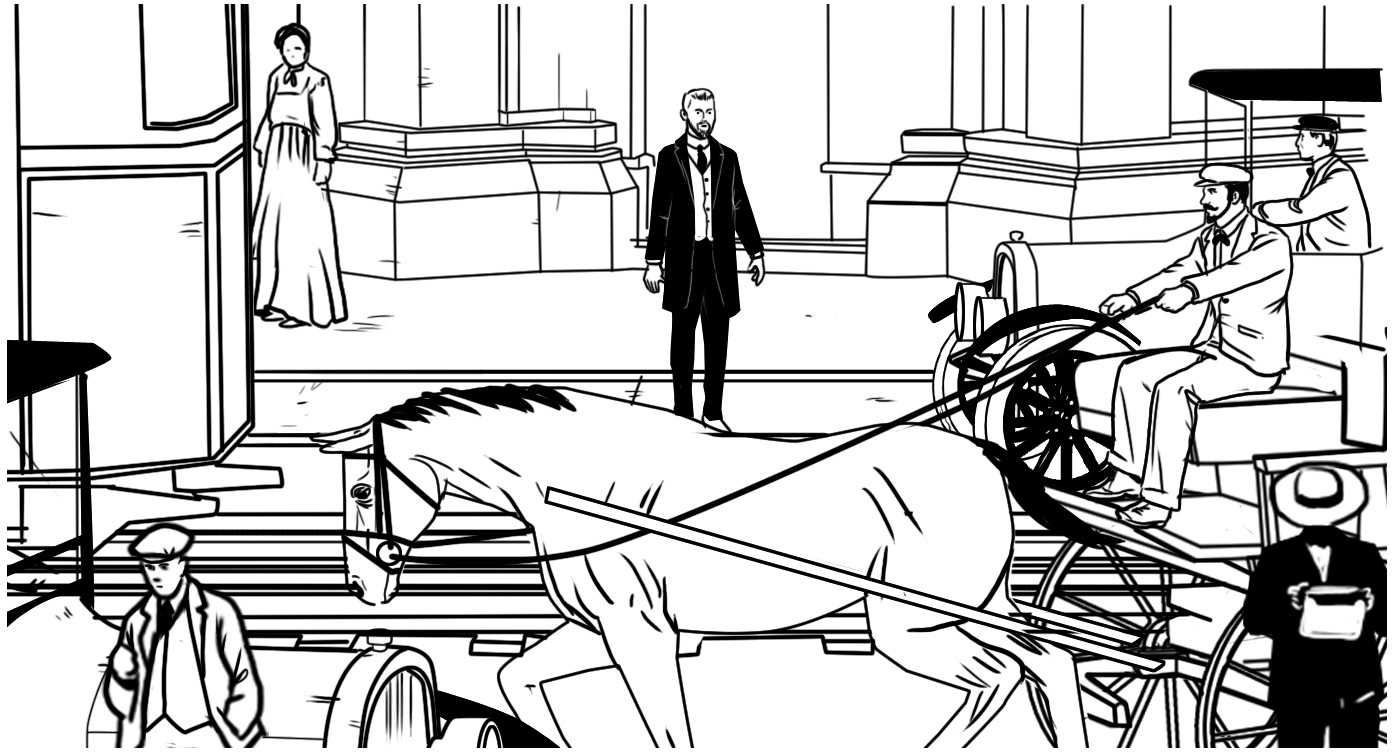
After the meeting, Pierre went back out into the rain. There were horses, carriages, cars, people, and trams everywhere. As Pierre began to cross a big, busy street, a huge horse-drawn wagon hit him. Pierre tried to grab on to the horse, to steady himself, but he was weak. He fell. The wagon driver couldn’t stop the heavy cart. The wheel ran over Pierre and crushed his skull.
A few hours later, Marie heard the terrible news that her husband was dead. It struck her as hard as the wagon that killed Pierre. Marie felt as if there was no reason to be happy ever again. She became silent. She wouldn’t eat and barely got out of bed. It seemed to her as if her life was over.

For many months, Marie was miserable and alone. She later wrote that her children, Irene and Eve, were her only reasons to go on living.
After a while, the Sorbonne invited Marie to take over Pierre’s teaching job. Marie agreed, but it was a bittersweet triumph. While Pierre was alive, they would not let her be a professor! No woman had ever taught at the Sorbonne. Now that Pierre was dead, she was welcome to take his place.
On the November day in 1906 when Marie arrived to teach her first class, hundreds of people lined the streets. Reporters and photographers came. The crowds waited to hear what the famous Madame Curie would say. Would she mention Pierre? Would she talk about how much he meant to the world of science? No. Marie simply began the science lesson where Pierre had left off. Even so, people in the audience cried. They all sensed how Marie felt, and how hard it was for her to go on without him.

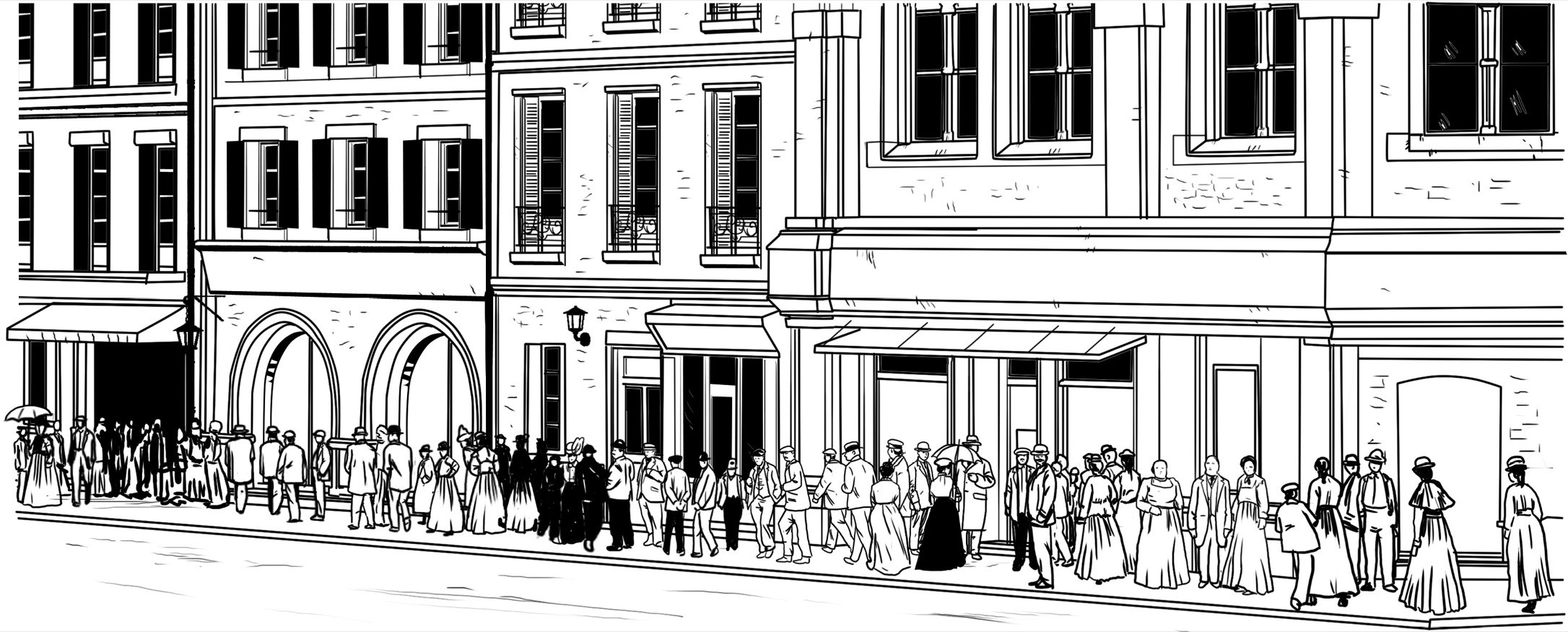
For the next few years, Marie was sad. Still, she continued her work and moved her children to a house in the country, not far from Paris. Marie wanted Irene and Eve to be able to swim and play outside. She also wanted them to learn. Irene was especially smart and, like Marie, loved math and science. Eve was good at music.
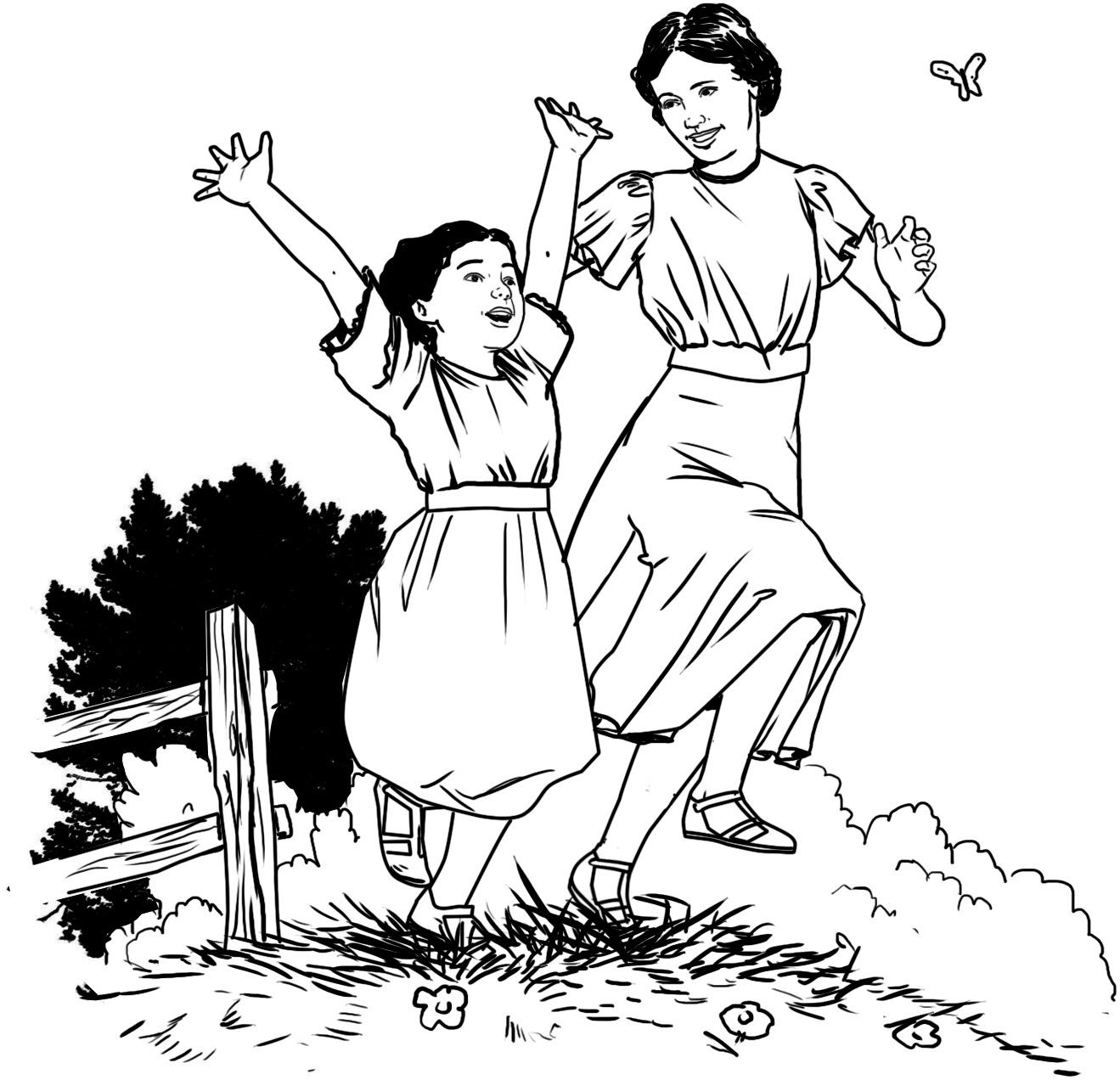
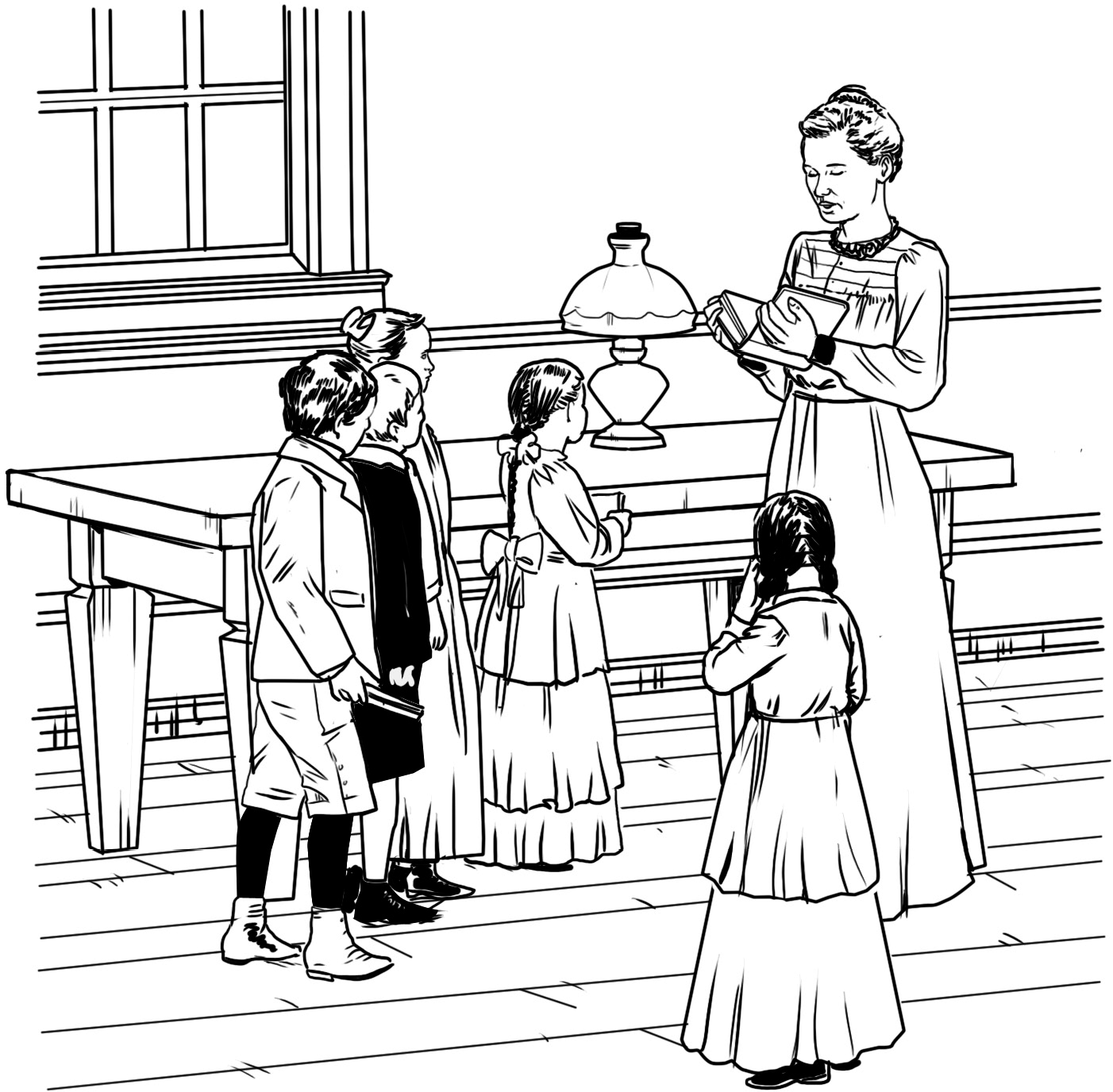
Marie arranged with her friends to teach a small group of their children at home. It was something like the Flying University! All the adults took turns teaching classes in one another’s houses.
Marie’s friends were all scientists. They all spent time together, having dinner and teaching the children. They went on vacation to the beach together. They were very close.
One day, her friends noticed a change in Marie. Suddenly, she seemed happier! She was wearing a pretty dress with a flower, instead of the black dresses she had been wearing to mourn Pierre.
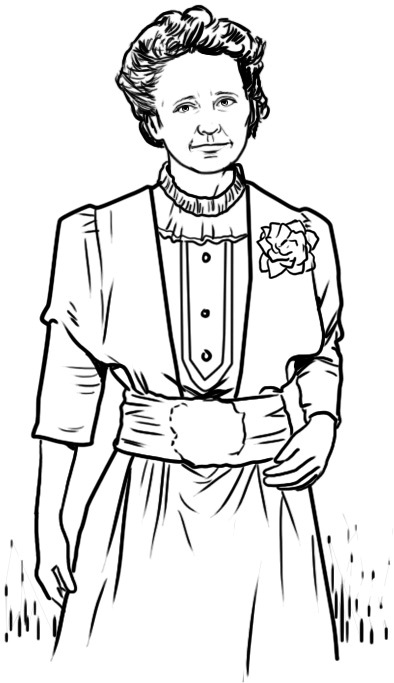
Pretty soon, her friends figured out why Marie was happy. She had fallen in love! The only problem was that the man she loved—Paul Langevin—was already married.

Paul was part of Marie and Pierre’s circle of friends. He had been Pierre’s student. He was a brilliant scientist and a good friend. Paul was unhappily married. Sometimes his wife was violent. Paul wished he hadn’t married her.
Marie probably never wanted to fall in love with a married man. But she followed her heart and spent time with him anyway. It was the first happiness she had felt in years.

Paul wrote love letters to Marie, and she wrote back to him. One day, Paul’s wife, Jeanne, found the letters. She was furious. She threatened to kill Marie! She even followed Marie in the street!
Marie tried to convince Paul to leave his wife and get a divorce. Paul had four children with Jeanne. He didn’t want to break up his family. Finally, he promised his wife that he wouldn’t see Marie again—except as a friend.
That year, Marie was on the verge of making history—again. She was nominated to become the first woman member of the French Academy of Sciences. Was France ready to treat women equally? There were strong feelings on both sides. Many newspapers wrote angry articles about it. They thought women should not be allowed into this private group of male scientists. Even though Marie was already one of the most famous scientists in the world, they thought she should be kept out.
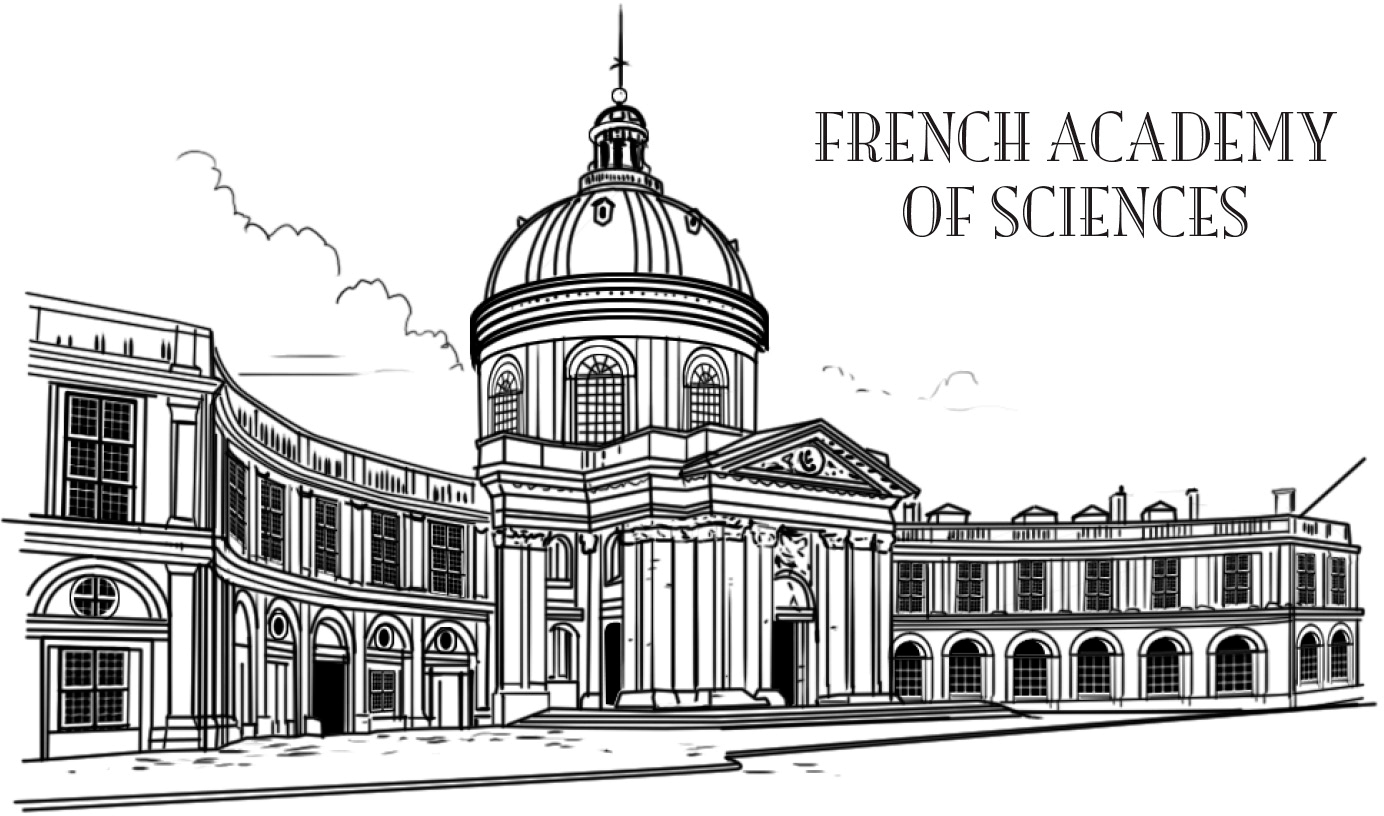
When it came time to vote, Marie was not even allowed inside the Academy’s building to see what happened!
The vote was held at exactly four o’clock on January 24, 1911. Marie was not elected. Her friends were angry about it, but Marie acted like she didn’t care. She was not the kind of person to make a fuss about anything.
Besides, Marie still had her work, and she was still in love with Paul.
In November 1911, Marie went to a very important science meeting in Brussels, Belgium. All the most famous scientists from Europe were there, including Albert Einstein. Paul Langevin went, too.

When Paul’s wife found out he and Marie were in Brussels together, she was furious. She suspected that Paul and Marie were still in love. She sent Marie’s love letters to the Paris newspapers! A terrible scandal broke out. There were stories about Marie and Paul in the newspaper every day. Many French people thought Marie was to blame.
Marie was angry and horrified. She didn’t want her daughters to suffer from the bad publicity. She didn’t want it to ruin her career, either.
It was an especially bad time for this kind of trouble. That same week, Marie had just gotten a letter from the Nobel Prize committee. They were giving her another Nobel Prize! This time, she alone would be the winner. It was an amazing honor. Only three other people have ever won the Nobel Prize twice!
Marie was afraid that the newspaper stories would somehow spoil the Nobel Prize. She was right.
A few weeks later, the Nobel Prize committee sent her a second letter. After all the newspaper stories, they wanted Marie to refuse the prize! They asked her not to come to Stockholm.
Marie was not going to miss out on this chance to make history. She told the committee that her private life was private. She was coming to Stockholm and accepting the prize. Marie believed they were giving her the Nobel Prize for science—nothing else. Nothing else should matter.
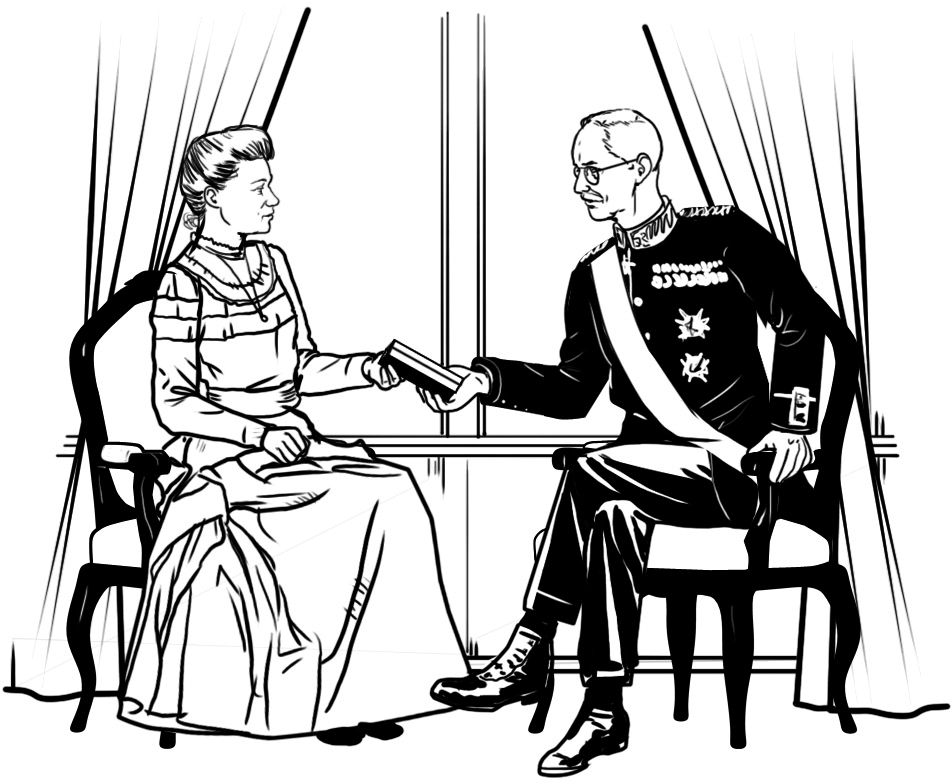
In December 1911, Marie sat in a room with the king of Sweden. The king gave her the solid gold medal. Marie held her head high and made a speech. A fancy banquet was served with artichokes, fish, chicken, and wine. Her daughter Irene and her sister Bronia were there to share her joy.

It was a thrilling experience for them all, and fourteen-year-old Irene would remember it all her life. It wouldn’t be the last time Irene would make that special trip to Stockholm.